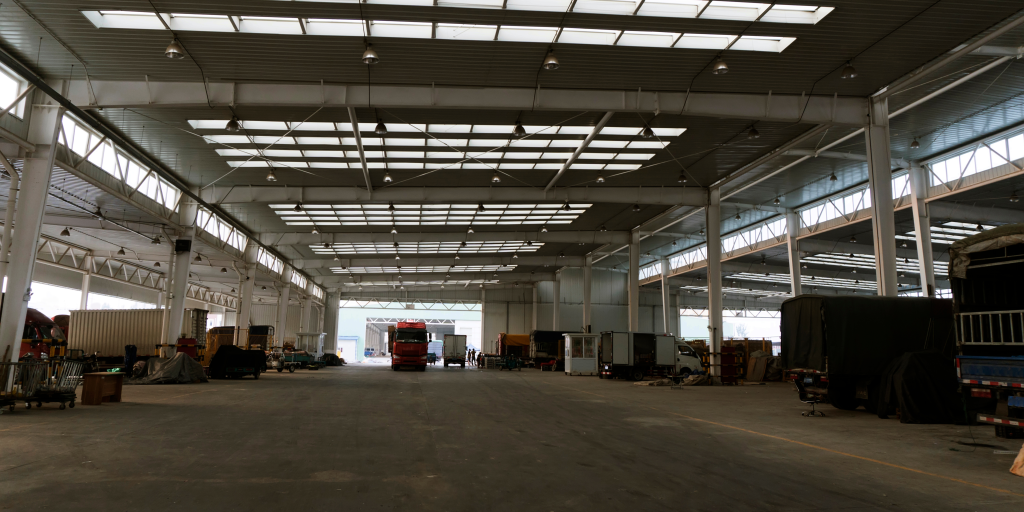

Trucking And E-Commerce : An Inseparable Alliance Shaping The Future Of Logistics
The rise of e-commerce has revolutionized the way people shop, and with it, the demand for efficient and reliable transportation has grown exponentially.
At the forefront of this logistical revolution stands the trucking industry, serving as the lifeblood that connects online retailers and consumers.
This article delves into the intricate relationship between trucking and e-commerce, exploring the impact of online shopping on the trucking industry and the challenges and opportunities it presents.
The Surge Of E-Commerce
The advent of e-commerce has transformed the retail landscape, allowing consumers to shop from the comfort of their homes and enabling businesses to reach a wider customer base.
This surge in online shopping has resulted in an unprecedented demand for trucking services to transport goods from distribution centers to the end customers.
The Need For Speed And Efficiency
In the world of e-commerce, speedy delivery has become a key differentiator for businesses.
Consumers now expect quick and reliable shipping, making efficient trucking operations vital.
To meet these demands, trucking companies are streamlining their processes, optimizing routes, and investing in technology such as GPS tracking and route optimization software.
Last-Mile Delivery Challenges
One of the most critical aspects of e-commerce logistics is the last-mile delivery, which refers to the final leg of the delivery process from a local distribution center to the customer’s doorstep.
Last-mile delivery poses unique challenges, including navigating urban traffic, coordinating multiple deliveries, and meeting tight delivery windows.
Trucking companies are exploring innovative solutions such as crowd shipping, autonomous vehicles, and delivery lockers to enhance last-mile efficiency.
Warehousing And Fulfillment Centers

E-commerce’s surge has led to the emergence of massive warehousing and fulfillment centers strategically located near major urban areas.
These centers act as hubs for order fulfillment, where goods are received, stored, and prepared for shipping.
Trucking companies play a crucial role in transporting goods between these centers, ensuring a seamless flow of inventory.
Capacity Constraints And Driver Shortage
The rapid growth of e-commerce has put considerable strain on the trucking industry’s capacity to meet the escalating demand.
The existing shortage of qualified truck drivers further exacerbates this challenge.
To address these constraints, trucking companies are implementing recruitment and retention strategies, exploring autonomous trucking technology, and partnering with third-party logistics providers to optimize their operations.
Technology-Driven Solutions
Trucking and e-commerce are both beneficiaries and enablers of technological advancements.
Telematics, electronic logging devices (ELDs), and real-time tracking systems have revolutionized fleet management, enhancing operational efficiency, driver safety, and customer experience.
Furthermore, the potential of autonomous trucks and drone deliveries holds promises of further optimization and cost reduction.
Sustainability And Environmental Concerns

The trucking industry, along with e-commerce, faces growing pressure to minimize its environmental impact.
Efforts to reduce carbon emissions, improve fuel efficiency, and adopt alternative fuels are gaining traction.
Electric trucks and hydrogen-powered vehicles are emerging as potential sustainable solutions to drive the industry towards a greener future.
Reverse Logistics And Returns Management
E-commerce has also brought about a significant increase in product returns.
Efficient management of reverse logistics, including the pickup and transportation of returned items from customers back to distribution centers, is essential.
Trucking companies play a crucial role in facilitating the reverse flow of goods, ensuring timely pickups and effective returns processing.
Collaborative Logistics And Shared Resources
To meet the challenges posed by the surge in e-commerce, trucking companies are exploring collaborative logistics models.
By sharing resources, such as warehousing space and delivery networks, multiple retailers can consolidate their shipments, reducing costs and optimizing delivery routes.
This collaborative approach allows trucking companies to maximize efficiency and minimize empty miles.
Supply Chain Visibility And Tracking

The integration of e-commerce platforms with advanced supply chain management systems has enhanced visibility and tracking capabilities.
Real-time tracking and monitoring of shipments provide customers with accurate delivery updates, while also enabling trucking companies to proactively address any issues that may arise during transportation.
Customer Expectations And Experience
E-commerce has raised the bar for customer expectations regarding delivery speed, flexibility, and transparency.
Trucking companies need to align their operations to cater to these demands.
Delivery time windows, options for scheduled or expedited deliveries, and effective communication channels become essential factors in providing a positive customer experience.
Cross-Border E-commerce And International Shipping
The growth of cross-border e-commerce has opened up new opportunities and challenges for trucking companies.
The transportation of goods across international borders requires compliance with customs regulations, documentation handling, and coordination with international logistics partners.
Trucking companies involved in international shipping play a crucial role in ensuring seamless cross-border trade.
E-commerce Marketplaces And Fulfillment Services

The rise of e-commerce marketplaces, such as Amazon, has led to the emergence of third-party fulfillment services.
These services provide warehousing, order processing, and fulfillment solutions to small and medium-sized online retailers.
Trucking companies often partner with these fulfillment services to handle the transportation of goods, enabling efficient order fulfillment for multiple online sellers.
Data Analytics And Demand Forecasting
The integration of data analytics and demand forecasting tools has become increasingly important in the trucking industry.
By analyzing e-commerce data, including purchasing patterns, geographic trends, and seasonal fluctuations, trucking companies can optimize their operations, anticipate demand surges, and ensure adequate capacity to handle peak periods.
Regulation And Compliance
The dynamic nature of e-commerce requires trucking companies to stay updated with evolving regulations and compliance requirements.
From customs and trade regulations for cross-border shipments to adherence to safety standards and labor regulations, trucking companies need to navigate a complex regulatory landscape to ensure seamless operations.
Inventory Management And Just-In-Time Delivery
E-commerce has fueled the adoption of just-in-time (JIT) delivery models, where goods are delivered to the distribution centers or retail outlets precisely when they are needed.
Trucking companies play a vital role in JIT delivery by ensuring timely and efficient transportation of inventory, minimizing inventory holding costs, and supporting agile supply chain management.
Urban Logistics And City Restrictions

The rapid growth of e-commerce has led to increased delivery activity in urban areas, resulting in congestion and environmental concerns.
To address these challenges, trucking companies are exploring innovative urban logistics strategies.
This includes using smaller delivery vehicles, implementing nighttime deliveries, and partnering with local authorities to optimize delivery routes and mitigate the impact of trucking operations on cities.
Omni-Channel Retailing
With the rise of omni-channel retailing, where retailers provide a seamless shopping experience across multiple channels (e.g., online, brick-and-mortar stores, mobile apps), trucking companies are required to adapt and support diverse delivery options.
This can include delivering online orders to customers’ homes, facilitating in-store pickups, or even offering same-day or instant deliveries to meet the varying needs of customers.
Collaboration With E-Commerce Platforms
Trucking companies are forming strategic partnerships with major e-commerce platforms and online marketplaces to enhance their capabilities and expand their reach.
By integrating their systems and services with these platforms, trucking companies can gain access to a broader customer base, streamline order processing, and benefit from increased shipment volumes.
Cybersecurity And Data Protection

As e-commerce relies heavily on data exchange and digital transactions, trucking companies need to prioritize cybersecurity and data protection measures.
This includes safeguarding customer information, securing communication networks, and implementing robust data protection protocols to prevent cyber threats and data breaches.
Impact On Traditional Retail And Brick-And-Mortar Stores
The growth of e-commerce has disrupted the traditional retail landscape, leading to the closure of some brick-and-mortar stores.
Trucking companies have had to adapt to shifting demand patterns, with fewer deliveries to physical retail locations and increased deliveries to e-commerce fulfillment centers.
Customer Returns And Reverse Logistics
The ease of online shopping has also increased the volume of customer returns.
Trucking companies play a critical role in managing the reverse logistics process, including the pickup of returned items, transportation back to warehouses, and processing returns efficiently to ensure customer satisfaction.
International E-Commerce And Global Trade

E-commerce has facilitated cross-border trade, enabling consumers to access products from around the world.
Trucking companies involved in international shipping must navigate complex customs procedures, trade regulations, and documentation requirements to facilitate smooth and efficient cross-border e-commerce transactions.
Adaptation To Changing Consumer Behavior
As consumer preferences and behaviors continue to evolve, trucking companies must remain adaptable.
This includes understanding changing shopping habits, such as the increasing demand for sustainable products and the shift towards mobile shopping and adjusting their operations and services accordingly.
Conclusion
The synergistic relationship between trucking and e-commerce is reshaping the logistics landscape, driving innovation, and propelling the growth of the global economy.
As e-commerce continues to flourish, trucking companies must embrace technological advancements, optimize operations, and adapt to evolving customer expectations.
The symbiotic relationship between trucking and e-commerce continues to shape the future of logistics.
The rapid growth of online shopping has propelled the trucking industry to evolve and adapt to meet the increasing demands for fast and reliable deliveries.
By leveraging technology, optimizing operations, and addressing challenges such as capacity constraints and sustainability, trucking companies are poised to play a pivotal role in the seamless flow of goods, enabling the e-commerce revolution to flourish.
As e-commerce continues to thrive, the trucking industry will remain an indispensable partner, delivering convenience and satisfaction to consumers around the globe.
Add a comment Cancel reply
Categories
- Blog Posts (43)
- Buying Tips (5)
- Selling Tips (4)
- Truck Reviews (17)
Recent Posts
About us

Meet Percy, the blog editor who knows his semicolons from his emojis, and his coffee order by heart. He may spend most of his days glued to a computer screen, but don’t let that fool you – he is a superhero at midnight (as long as there’s enough caffeine involved). When he is not editing blog posts, you can usually find him daydreaming about his next snack break or planning his next witty tweet.
Related posts


How Warehouses Drive Logistics Efficiency

Truck Driver Scheduling Solutions









